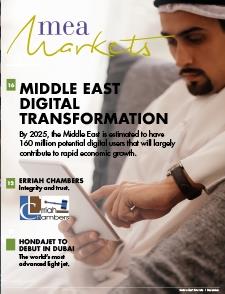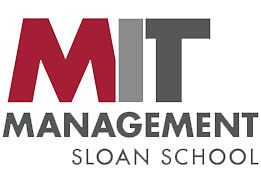Prominent Regional and Global Organizations Set to Join the Inaugural Enterprise Excellerate
E2 will focus on three themes: FinTech, Digital Banking and Start Ups. On this regard, the event will gather over 200 delegates from the technology, finance, entrepreneurial, and banking space to spur discussions on how the Middle East can keep up with the global trends and thus create new digital and tech startups in Bahrain whilst attracting investments for the development of the economy. Leading organizations will be joining this exciting forum to engage in the informative sessions and contribute to the growing entrepreneurial ecosystem.
Amongst the organizations joining E2 is the Abu Dhabi Global Market (ADGM) – a broad-based international financial center for local, regional and international institutions that support member institutions with the regulatory framework, legal jurisdiction and attractive business environment for sustainable business growth. The Executive Director of Capital Markets at ADGM, Mr. Wai Lum Kwok will be joining the conference and will speak to the effect of highlighting the GCC as a greater influential hub for global commerce.
In addition to this, Innovate Finance – an association representing UK’s global FinTech community – will join in as an Associate Partner to the conference. Innovate Finance will contribute to the conference through a riveting speech by their CEO, Lawrence Wintermeyer on the trajectory of the FinTech industry within a global standpoint.
E2 will feature discussions on topics relevant to the current market scenario including sessions related to the FinTech Revolution, Digital Banking, the Rise of Robo-advisors, Blockchain and Crypto-currencies and much more. The event will also see the exclusive launch of “The Venture Capital Report” by Thomson Reuters.
The conference further welcomes a large roster of speakers who by and large are connected to the financial technology sector. Some of the confirmed speakers include:
David Parker, Executive Director – Financial Services, Bahrain Economic Development Board
Lawrence Wintermeyer, CEO, Innovate Finance
Stuart Hutton, CIO, Simply Ethical
Azzeddine Chaibrassou, Founder, Qardz
Areije Al Shakar, Vice President and Deputy Head, Development Services, Bahrain Development Bank
Haider Al-Mosawi, Co-Founder, Sirdab Lab
Erkki Aaltonen, Executive Director, startAD, NYU Abu Dhabi
Bader Alzahrani, Managing Director, Endeavor Saudi Arabia
Ola Doudin, CEO, Co-Founder, BitOasis
Jan Skoyles, Research Executive, GoldCore.com Infosys
Greg Simon, Co-Founder, Loyyal
David Martinez de Lecea, Founder, Finerd
Junaid Wahedna, CEO, Wahed Invest
Martin Young, CEO, Farringdon Asset Management
Ashar Nazim, Partner, Head of Global Islamic Banking Centre, EY
Wissam Khoury, Managing Director, Middle East & Africa, FIS
Othman Abdullah, Managing Director, Silverlake
Nasser Saleh, CEO, MadfooatCom
Mohammad Raafi Hossain, CEO, Finocracy
Isa Ahmed Al Doseri, Assistant Manager of Investment Division, Bahrain Development Bank
Michael Mellinghoff, Managing Director, Techfluence
Omar Rana, Co-Founder & Director, Strategy & Finance, Finalytix
Dilip Sankarreddy, Founder and CEO, QuietGrowth
Mr. V. Ramkumar, Senior Partner, Cedar Management Consulting International
Ali Mohsen, Chief Product Officer, Level Z
Dr. Amer Alzaidi, Head of Information System Department, Vice-Dean Faculty of Computing and Information Technology, University of Jeddah
Enterprise Excellerate will be a one day event that will take place on the 5th of December 2016 ART Rotana Hotel, Amwaj Islands, Kingdom of Bahrain. For more details log on to: http://e2.wibc2016.com



























